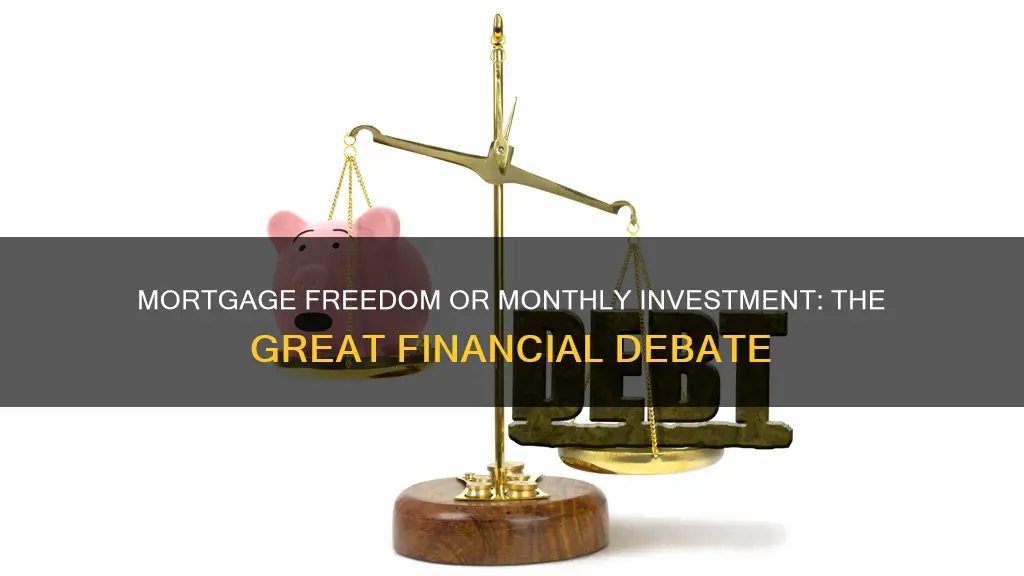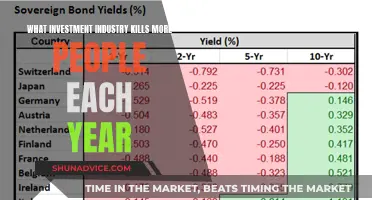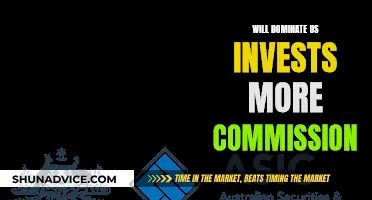
Paying off your mortgage or investing your money is a difficult decision that many people face. While there is no one-size-fits-all answer, there are several factors to consider when deciding what to do with your money. These include your mortgage rate, risk tolerance, expected investment returns, and individual financial goals.
Paying off your mortgage early can save you thousands of dollars in interest and give you peace of mind by eliminating debt. However, it may also result in opportunity costs, illiquidity, and loss of tax deductions. On the other hand, investing your money can potentially provide higher returns, liquidity, and employer matches. But it also comes with higher risk and does not eliminate your debt.
Ultimately, the decision to pay off your mortgage or invest depends on your financial situation and comfort level with risk. If you have a low mortgage rate, investing may be more financially beneficial. However, if you prioritise being debt-free, paying off your mortgage early could be the better option.
| Characteristics | Values |
|---|---|
| Interest savings | Paying off your mortgage early can save you thousands or tens of thousands of dollars in interest payments. |
| Peace of mind | Paying off your mortgage early can ease your burden and prevent the worry of missing mortgage payments and potential foreclosure in the event of a financial emergency. |
| Build equity | Paying off your mortgage faster means building equity in your home more quickly, which can help you qualify for refinancing and save you money in the long run. |
| Opportunity cost | Any extra money you spend on paying down your mortgage faster is money you aren't able to use for other financial goals, such as retirement savings or emergency funds. |
| Wealth is tied up | Property is an illiquid asset, meaning you can't convert it to cash quickly or easily. If you need cash in a financial emergency or want to jump on an investment opportunity, you would have to sell your house, which can take time. |
| Loss of tax breaks | If you choose to pay down your mortgage instead of maxing out your tax-advantaged retirement accounts, you will miss out on tax savings. You may also lose out on tax deductions for mortgage interest. |
| Higher returns | The stock market has, for many years, offered higher average returns than mortgage rates, so investing your money instead of paying off your mortgage faster can result in higher returns. |
| Liquid investment | Unlike a home, which ties up your wealth, having your money in stocks, bonds and other market investments means you can easily sell and access your money if needed. |
| Employer match | If you invest extra funds in a retirement account and your employer offers a match, you get to enjoy compound earnings on that extra money over time. |
| Higher risk | There is more volatility in the stock market than in the housing market year over year, so you need to ensure your investing timeline is long enough to weather ups and downs. |
| Increased debt | If you don't like the idea of having debt, investing may not be the best option as you won't be debt-free until your mortgage is fully repaid. |
What You'll Learn

Paying early vs on-time
Overview
The decision to pay off your mortgage early is a personal one that depends on your individual circumstances and financial goals. There are valid arguments for both paying off your mortgage early and sticking to on-time payments.
Paying Early
Paying off your mortgage early can save you thousands of dollars in interest over the life of the loan. The sooner you start paying extra, the more you'll save, as most of your monthly payment goes towards interest in the early years of the loan. By paying extra, you can also build equity in your home more quickly, which can help you qualify for refinancing at a better rate.
On-Time Payments
From a financial perspective, investing your money rather than paying off your mortgage early usually makes more sense, especially when mortgage rates are low. This is because average stock market returns have historically been higher than mortgage rates, so you can gain more through investing. Additionally, paying the minimum on your mortgage allows you to keep your cash liquid, giving you more flexibility to respond to financial emergencies or investment opportunities.
Key Considerations
- Interest Savings: Paying off your mortgage early guarantees a return on your investment in the form of interest savings.
- Peace of Mind: Being debt-free can ease your financial burden and reduce stress.
- Opportunity Cost: Paying off your mortgage early means missing out on potential investment opportunities with higher returns.
- Tax Considerations: Mortgage interest is tax-deductible, so keeping the mortgage could reduce the amount you owe in taxes.
- Risk Tolerance: Paying off your mortgage early reduces your risk, while investing in the stock market carries more risk but also offers the potential for higher returns.
- Financial Goals: Consider your overall financial goals and priorities. If you're saving for retirement, for example, it may be better to invest rather than pay off your mortgage early.
There is no one-size-fits-all answer to whether you should pay off your mortgage early or stick to on-time payments. The best option depends on your financial situation, risk tolerance, and financial goals. Consult a financial advisor to help you make the decision that is right for you.
Why People Avoid Investing
You may want to see also

The opportunity cost of paying off a mortgage
Opportunity costs refer to the benefits or advantages that are forgone when choosing one option over another. In the context of paying off a mortgage early, the opportunity cost is the potential financial gains that could have been achieved by investing the money elsewhere.
For example, consider an individual with a $200,000, 30-year mortgage at a fixed interest rate of 4.5%. If they choose to pay off their mortgage early by investing an extra $300 per month, they would save $67,816 in interest over the life of the loan. However, if they were to invest that $300 per month in an index fund tracking the S&P 500, they could potentially earn a much higher return. Historically, the S&P 500 has returned an average of 10% to 11% annually since its inception in 1926 through 2018. Even with a more conservative estimate of an 8% annual return, investing $300 per month for 19 years (the time it would take to pay off the mortgage early) would result in approximately $160,780, more than double the interest savings.
Additionally, paying off a mortgage early may provide peace of mind and reduce anxiety associated with debt. It can also help build equity in the home, making it easier to qualify for refinancing or leveraging the equity through a home equity loan or line of credit.
However, it's important to consider the potential opportunity cost of this decision. By investing the money instead of paying off the mortgage early, individuals may be able to take advantage of higher returns in the stock market. This could result in faster wealth accumulation and potentially a larger nest egg for retirement. Moreover, investing in the financial markets provides liquidity, allowing easy access to funds in case of financial emergencies or other investment opportunities.
In conclusion, while paying off a mortgage early has its benefits, it's important to consider the opportunity cost of foregoing potential investment returns. Individuals should carefully evaluate their financial situation, risk tolerance, and investment goals before making a decision. Consulting a financial advisor can help individuals make informed choices that align with their specific circumstances and objectives.
Choosing a Reliable Investment Firm
You may want to see also

The pros and cons of paying off a mortgage early
Pros
Paying off your mortgage early has its benefits, including:
- Saving on interest: You can save thousands or tens of thousands of dollars in interest payments.
- Peace of mind: Being debt-free can ease your financial burden and provide security in the event of an emergency.
- Building equity: Paying down your mortgage faster means building equity in your home, which can help you qualify for refinancing or leverage your equity in the form of a home equity loan or line of credit.
- Owning your home outright: Once you pay off your mortgage, you own the home outright, eliminating the risk of losing the house if you hit a financial rough patch.
Cons
However, there are also some drawbacks to consider:
- Opportunity cost: Paying off your mortgage early means missing out on potential higher returns from other investments, such as the stock market.
- Wealth is tied up: Property is an illiquid asset, meaning it can take months or longer to sell and access the capital.
- Loss of tax breaks: You may lose out on tax deductions for mortgage interest if you normally itemize your deductions.
- Impact on liquidity: A large chunk of your liquidity and net worth will be tied up in your home, which can make it harder to access cash when needed.
Self-Employed Investment Strategies
You may want to see also

The pros and cons of investing
Investing your extra cash instead of paying off your mortgage early has several benefits and drawbacks. Here are some of the main ones to consider.
Pros of Investing
- Higher returns: The stock market has typically provided higher average returns than mortgage rates, so you stand to gain more from the difference.
- Liquid investment: Stocks, bonds, and other market investments are more liquid than a home, meaning you can sell and access your money quickly if needed.
- Employer match: If you invest in a retirement account and your employer offers a match, you can benefit from compound earnings on this "free money."
- Wealth building: Investing in your retirement and future through stocks, bonds, or even a small business can increase your wealth over time.
Cons of Investing
- Higher risk: The stock market is more volatile than the housing market, so you need to be prepared for potential losses.
- Increased debt: If you're not comfortable with the idea of debt, investing may not be the best option as you won't own your home outright until the mortgage is repaid.
- Continued payments: Investing requires an ongoing financial commitment, and there is no guarantee that you will see favourable returns.
- Debt remains: Investing won't directly reduce your mortgage debt, and there is always a risk of losing your home if you can't make the payments.
Smart Ways to Invest $2,000
You may want to see also

How to decide between paying off a mortgage and investing
When deciding between paying off a mortgage and investing, there are several factors to consider. Here are some key points to help you make an informed decision:
Financial Circumstances and Risk Tolerance
Firstly, assess your financial situation and risk tolerance. If you have high-interest credit card debt or other high-interest loans, prioritising paying off those debts before your mortgage may be more financially prudent. Additionally, consider your risk tolerance when investing. The stock market offers the potential for higher returns but also carries higher risks. If you are risk-averse, paying off your mortgage might be a more suitable option.
Interest Rates and Investment Returns
Compare the interest rate on your mortgage with the potential returns on investments. If your mortgage rate is high, it may be more beneficial to focus on paying it off first. Conversely, if your mortgage rate is low, investing your money elsewhere could yield higher returns. For example, if your mortgage rate is 3% and the average yearly investment return is 8%, investing your money could be more advantageous.
Time Horizon
Consider your time horizon, especially if you are approaching retirement age. Generally, the earlier you start saving for retirement, the better, as it allows you to take advantage of compound interest. However, if you are closer to retirement, paying off your mortgage might be a more conservative choice to reduce your monthly expenses.
Tax Implications
There are tax implications to consider for both options. Paying off your mortgage early could result in losing tax deductions on mortgage interest payments. On the other hand, investing in a retirement account, such as a 401(k), offers tax advantages and potential employer matching contributions, which can boost your retirement savings.
Peace of Mind and Emotional Factors
Don't underestimate the emotional aspect of being debt-free. Paying off your mortgage can provide peace of mind and reduce stress, especially if you are averse to the idea of constant debt. However, investing and growing your wealth can also bring a sense of financial security.
Consult a Financial Advisor
Finally, it is always recommended to consult a certified financial advisor before making significant financial decisions. They can provide personalised advice based on your unique financial circumstances, risk tolerance, and goals.
Best Etoro Investments Today
You may want to see also
Frequently asked questions
Paying off your mortgage early can save you thousands of dollars in interest and give you peace of mind. You will also build equity in your home more quickly, which can help you qualify for refinancing.
Any money that goes towards your mortgage isn't going towards another financial goal, such as investing in stocks or building an emergency fund. The money you put into your mortgage also becomes illiquid, meaning it's not easy to access.
The stock market has the potential for higher returns than the average mortgage interest rate. Investments are also more liquid than money that is tied up in your home. If you invest in a retirement account, your employer may match your contributions.
Investing is riskier than paying off your mortgage. You may also be increasing your wealth in the future, but you will still be making monthly payments on your mortgage.







